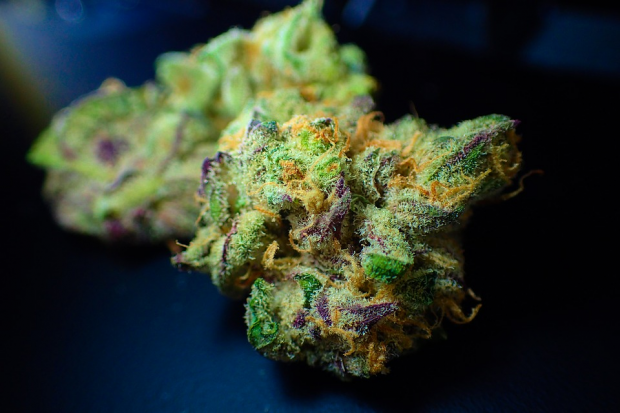Delta-10 is another cannabinoid present in cannabis in minute concentrations. It has the same effect as regular delta-9 THC, but it is far less intense and is not regulated by the national government. This compound’s medicinal and public benefits are making people more curious about it. This article delves into Delta 10 Gummies research, its potential benefits and drawbacks, and if it may be used to treat Sleep Paralysis. https://trehouse.com/collections/delta-10/
https://trehouse.com/collections/delta-10/
What is Delta 10?
A few years ago, delta 10 THC was found by accident by a group of cannabis growers who acquired a cannabis farm in California where the crops had been sprayed with a flame retardant.
When the crops were tested, it was revealed that they contained extraordinarily high quantities of an undiscovered cannabinoid known as delta 10. Delta-10 is present at minimal levels in untreated crops, so we didn’t know it existed until recently.
A psychoactive
Although the exact amount of delta 10 in hemp is unclear, it may be extracted and used to produce potent delta 10 THC distillates. We only know about delta-10 because it’s psychoactive – around 30% less than delta 9 and similar to delta 8. Many people describe it as stimulating, elevating, motivating, and euphoric, identical to that of a Sativa strain of the hemp plant.
 https://pixabay.com/photos/bud-cannabis-close-up-dope-drug-3801028/
https://pixabay.com/photos/bud-cannabis-close-up-dope-drug-3801028/
How does delta 10 interact with the body?
Cannabinoids are capable of interacting with the body’s endocannabinoid system. It regulates homeostasis, including the brain, immunological system, endocrine system, etc. As a result, it performs various essential tasks, including modulating immune system response, metabolic rate, and pain management abilities.
CB1 and CB2 are the primary receptors of the endocannabinoid system. CB1 receptors may be found in the central nervous system, the lungs, the kidneys, and the liver. In contrast, hematopoietic cells have CB2 receptors. Furthermore, research has revealed that they exist in specific brain areas.
Delta 9 and Delta 8 THC is bound more strongly to CB1 receptors in the brain and nervous system. It exhibits a wide range of psychotropic effects as a result of this. Delta 10 THC, on the other hand, has a lower potency than its precursor. As a result of its interactions with CB1 and CB2 receptors, it is not as psychoactive as its predecessors and instead has a more euphoric and nootropic impact.
Could Delta 10 assist in the treatment of sleep paralysis?
There hasn’t been any clinical investigations on the effects of delta 10. It means we can’t say for definite if it has the capacity to alleviate sleep paralysis and promote better sleep in general. Even though consumers have told us that Delta 10 helps them sleep, it’s worth noting that it’s most recognized for its more uplifting characteristics, which is why some individuals may think it’s not an effective compound to take for sleep paralysis.
Predictably, delta 10 has a lot in common with delta 9 and 8. These cannabinoids are renowned for their potential anxiolytic qualities and their ability to modulate melatonin’s general circadian rhythm.
It indicates that if the cannabinoid is taken before night, it has a strong possibility of improving sleep. Still, there is no evidence claiming that it can be beneficial in treating issues like sleep paralysis.
Little research has been conducted into how delta-10 interacts with the body and how it helps to benefit both the physical and psychological well-being of people who are working with Sleep Paralysis. But the molecule most likely interacts with the endocannabinoid system (ECS) in the same manner as other THC isomers do. It will bind to CB1 receptors in the brain and central nervous system and specific CB2 receptors throughout the body. Nevertheless, there isn’t as much scientific evidence supporting the health benefits of delta-10 for sleep paralysis as there is for other cannabinoids. However, early anecdotal information seems promising.
Calming effect
Patients with sleep paralysis often complain about symptoms like headache, muscular pains, mood swings as well as anxiety.
But Delta 10 is anti-inflammatory in nature, which helps reduce inflammation and activate pain receptors in the body. It aids in lessening and easing the discomfort the patient must be experiencing.
It also offers an uplifting and calming impact without the intense euphoria and psychosis that other THC molecules may cause. It’s softer and maybe more helpful for reducing stress, elevating depressed moods, and balancing energy levels. Apart from this, it also induces relaxation and lacks the anxiety or psychosis that delta-9 THC does, making it an excellent alternative for relieving stress without sedation.
Remember that delta 10 is intoxicating, and many people characterize a delta 10 high as euphoric. While this is not the reason for concern, it’s essential to proceed with caution when using artificial or semi-synthetic substitutes.
 https://cdn.pixabay.com/photo/2017/11/03/19/06/herb-2915337__340.jpg
https://cdn.pixabay.com/photo/2017/11/03/19/06/herb-2915337__340.jpg
Risks and Side Effects
Delta-10 can still provide euphoria, although significantly less sedating and potent than ordinary delta-9 THC. But more studies on these chemicals are needed, as everybody’s unique ECS and chemistry create distinct effects with use. It is essential to consume only high-quality, lab-tested delta-10 products.
It’s vital to understand that, like delta-8 THC products, delta-10 products are manufactured from CBD rather than extracted organically from cannabis.
While this isn’t the reason for concern, it is prudent to exercise caution when utilizing synthetic or semi-synthetic alternatives.
The bottom Line
If you’re concerned about more intense chemicals like delta-9 THC, delta-10 may be a milder and more desired component that provides many of the same advantages as cannabis. However, it is advised to avoid using products that have not been FDA-tested for safety and efficacy and may use dangerous chemicals to extract delta-10 THC from CBD.
Speak with your doctor to learn how your medical history and other variables affect your choice to use delta-10 for sleep paralysis or other health issues.
References
National Library of Medicine: Pharmacology of cannabinoid CB1 and CB2 receptors R G Pertwee1 DOI: 10.1016/s0163-7258(97)82001-3
Who is the author?

Kathy Thomson is a professional content writer with experience of
more than 8+ years of writing in the CBD, fitness, health,
Cannabis, etc. She holds a journalism degree from Loyola
Marymount University.



![women [longevity live]](https://longevitylive.com/wp-content/uploads/2020/01/photo-of-women-walking-down-the-street-1116984-100x100.jpg)










